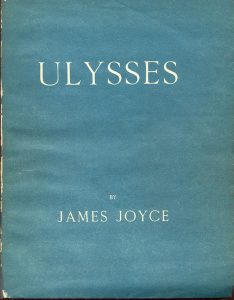A series of informal, intimate talks given by literary and cultural luminaries, In Conversation with the Rosenbach delves into fascinating histories, intellectual curiosities, and inspiring ideas. Each program offers the audience a chance to join the conversation after the talk and share their own thoughts and questions. Join us April 19 to hear constitutional scholar and novelist Kermit Roosevelt discuss the challenges of balancing safety with civil liberties.

Rosenblog: What drew you to constitutional law?
Kermit Roosevelt: I came to constitutional law in part by accident—I had thought I would become a tax professor, because primarily I wanted to teach and there’s always a need for tax professors. But law schools seemed to think that a clerkship on the Supreme Court prepared me better for constitutional law and I was able to get that job instead. I’m certainly happy it worked out that way. Constitutional law is where the debates about who we are as a society take place; it’s constitutional law that expresses our deepest values and our American identity.
RB: You’re a novelist as well as a professor and a legal scholar; do these professions share a common thread, in your opinion?
KR: One of the points I always try to make to my law students is that litigation is fundamentally about storytelling. In any legal case, the two sides are offering competing stories: different heroes, different villains, different themes. The side that wins is often the side whose story is more compelling, and the techniques you use to make your story compelling are actually the same techniques fiction writers use. I actually teach a creative writing seminar in the law school to help students develop their narrative craft.
RB: Your most recent novel, Allegiance, places a fictional protagonist against a backdrop of real historical events and figures. What was your research and writing process like?
KR: I did an enormous amount of research. I really wanted to get the details right. Basically my method was to read very widely, assemble all the facts I thought were interesting and important and relevant to themes I wanted to explore, and then try to figure out a story that would include as many of them as I could. I ended up having to cut out a lot, including some of my favorite historical details.
RB: Allegiance is set in the 1940s, but engages a struggle to balance safety with civil liberties which is still relevant today. Are there any contemporary cases that you foresee becoming as controversial as Korematsu v. United States decades from now?
KR: Not yet—in part because of Korematsu! What I mean by that is that Korematsu is controversial because in retrospect it looks like the Supreme Court failed. The Justices weren’t sufficiently skeptical of a deprivation of civil liberties that was justified in terms of national security but was in fact based on “hysteria, racial prejudice, and a failure of political leadership” (as the eventual government report on the detention put it). The Justices are aware of that, and in the post-9/11 cases they treated the Bush Administration’s claims about national security much more skeptically. The Bush Administration lost most of those cases, so there aren’t any decisions to look back on as the Court getting hoodwinked. We’ll have to wait and see what happens with the Trump Administration.
RB: What’s your favorite book or object at the Rosenbach?
KR: The manuscript of Ulysses! Joyce is one of my favorite authors—I spent more of my first year of law school than I should have reading Ulysses. And I spent more of my writing career than I should have trying to write like Joyce. I did a lot better when I lowered my sights a bit, but I still love to read him.

